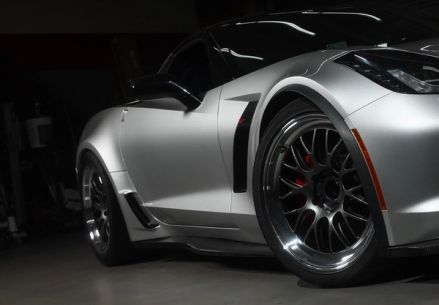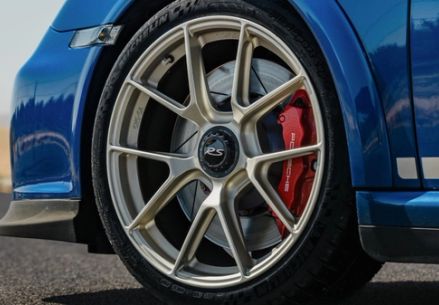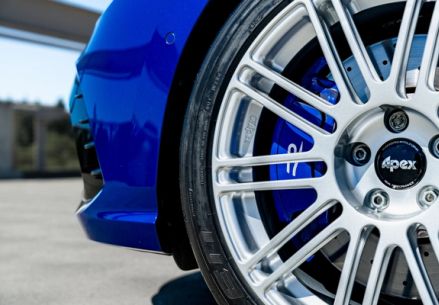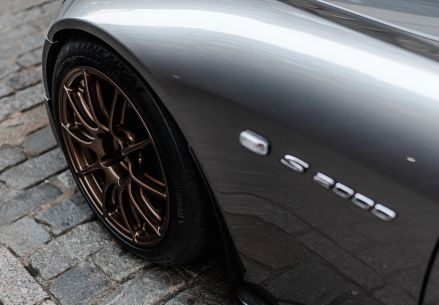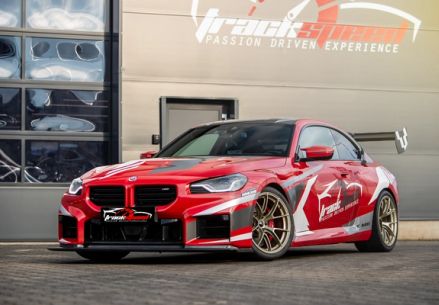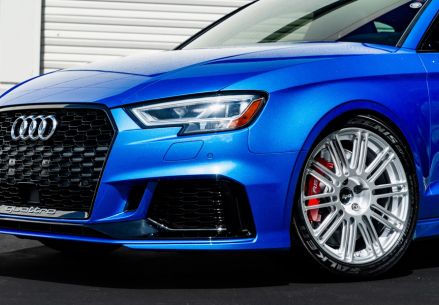
Why APEX Forged Wheels Have Unpainted Knurled Beads
Article | 08/14/2019 by Brandon Kimbell
Updated on 11/26/2025
Knurling on race wheels isn’t new, and it’s becoming a commonly sought-after feature.
The problem with knurling is that it varies in design and effectiveness. Some manufacturers may add knurling to their wheels just to check that feature box, regardless of whether it accomplishes its intended purpose.
Maintaining the effectiveness of our knurling was at the forefront of our minds when developing our new line of forged wheels.
Knurling know-how sets us apart
During manufacturing, wheels often go through a grinding phase to remove burrs and other small imperfections in preparation for painting. If knurling is added before grinding, then it can lose its sharpness. The less sharp knurling is, the less it can grip a tire’s rubber bead.
The depth, width, and pitch of the knurling pattern also has a big impact on how much “tooth” is available to bite into a tire’s bead. Often, the pattern is narrower and shallower than ideal.
Painted wheels typically have multiple layers of paint that can become really thick when combined. A gloss finish can have a base coat, color coat, and a clear coat. Spraying those three layers over knurling can fill in the grooves and round the edges off.
The combination of these production compromises can reduce the effectiveness of knurling and cause more tire slippage.
Below is a comparison of our ARC-8R’s knurled bead (left) vs. the knurled bead of a Brand X forged wheel (right).

The first thing you’ll notice about our wheel is that there’s no paint covering our bead. The bead area on our forged wheels is protected from paint to keep the unground teeth sharp. Over time, this surface will oxidize and create a hard, protective layer that’s less slippery than paint. The differences in width, depth, and sharpness are clearly visible and easily felt.
Are you getting what you’re paying for? Not all knurling is equal, so be sure to inspect this feature closely when shopping for wheels.
Tags
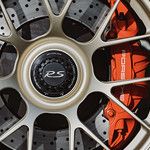 Brandon Kimbell
Brandon KimbellBrandon is a Porsche Fitment Expert at APEX Wheels. Prior to joining APEX in 2022, he worked as Office Manager for a Porsche & Ferrari service and race shop, guiding customers in all areas – suspension, power, aesthetics, you-name-it. His first foray into racing came In college when he was asked to assist at a PCA club race. Says Brandon, “I figured if I am already making the drive, I might as well enter the HPDE happening at the same time.” He hasn't stopped since. Among the various cars he has owned and/or tracked are a ‘74 Corvette Convertible, ’74 Firebird Formula 400, ‘17 GTI, ‘07 Cayman S, and his current ride, a ‘12 Cayman R (BGB X51 pack 3.8L) with staggered APEX EC-7RS 18x9”ET46 & 18x10” ET36 in Motorsport Gold. Fun Fact: Brandon is a big fan of SIM racing, which he uses to learn about a new track he’s going to or get a refresher on a familiar track, as well as improve his racecraft.Have questions about wheels for your Porsche? Use our contact form and ask for Brandon.
If you like cheap gear you will hate this newsletter.
